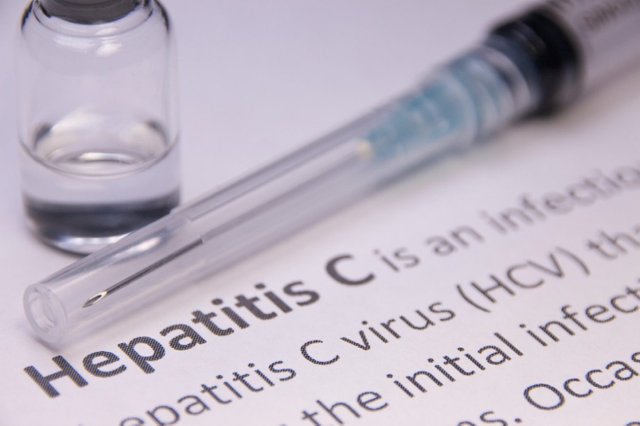Hepatitis C and liver cancer: What to know
Hepatitis C and liver cancer: What to know

Hepatitis C and liver cancer: What to know
Several viruses besides HPV have been linked to cancer, including hepatitis C, which is linked to liver cancer.
BY DANIELLE UNDERFERTH
hepatitis c test
If you think HPV is the only virus that causes cancer, think again. Several other viruses have been linked to cancer, including hepatitis C.
Hepatitis C is the most common blood-borne infection in the United States. It’s also the leading cause of liver cancer.
About 30 percent of people who get exposed to the hepatitis C virus will clear it on their own. The rest will go on to have chronic hepatitis C.
This ongoing infection causes inflammation in the liver. This extended inflammation can cause scarring, called cirrhosis, and can ultimately lead to liver cancer.
Chronic hepatitis C also increases the risk of non-Hodgkin lymphoma and head and neck cancers.
Unlike hepatitis A and B, there is no vaccine against hepatitis C, and there are few if any symptoms, says Harrys Torres, M.D., associate professor of Infectious Diseases.
“It’s a silent infection,” he says. “And it’s a very clever virus that mutates very fast, so it has been difficult to develop a vaccine.”
Knowing the risk factors and getting screened are your best defenses against cancers caused by hepatitis C. Treatment of this virus can reduce your risk of liver cancer by 75%.
Risk factors
About 75% of those infected with hepatitis C in the United States are baby boomers – people born between 1945 and 1965.
“It’s not clear why that particular group is at high risk for this infection, but they have at least five times the risk of having hepatitis C over people in other age groups,” Torres says.
Other risk factors for hepatitis C infection include:
Exposure to the virus through IV drug use, even one time or many years ago
Long-term hemodialysis
Organ transplant or blood transfusion before 1992
Receiving clotting factor concentrates produced before 1987
Exposure to infected blood by a needle in a health care setting
HIV diagnosis
A piercing or tattoo received in an unclean environment using unsterile equipment
Children born to hepatitis C-positive women
Infection through sexual contact is possible, but very rare.
The virus is not spread by sharing eating utensils, breastfeeding, or physical contact like hugging, kissing, and holding hands. You can’t get hepatitis C from someone coughing or sneezing.
Screening and treatment
Because chronic hepatitis C has few or no symptoms, it’s important to recognize the risk factors and get screened.
Hepatitis C can be detected through a simple blood test. Once it’s found, it’s easy to treat. Of the seven viruses that can cause cancer, hepatitis C is the only one that’s curable.
“That’s why it’s so important to identify it early and treat it,” he says. “With the treatment we have right now, we can eliminate the virus.”
Torres recommends all cancer patients, all baby boomers or anyone with a risk factor ask their doctor for the one-time screening and seek treatment if they are infected.
“For many years, treatment was difficult and had significant side effects. Many patients decided not to get treatment because of that,” says Torres.
Now, treatment is simply a pill, taken daily over the course of two to three months in most cases. With that simple regimen, doctors can cure the infection in more than 90%-95% of the cases.
Request an appointment at MD Anderson's Lyda Hill Cancer Prevention Center online or call 855-668-8897.